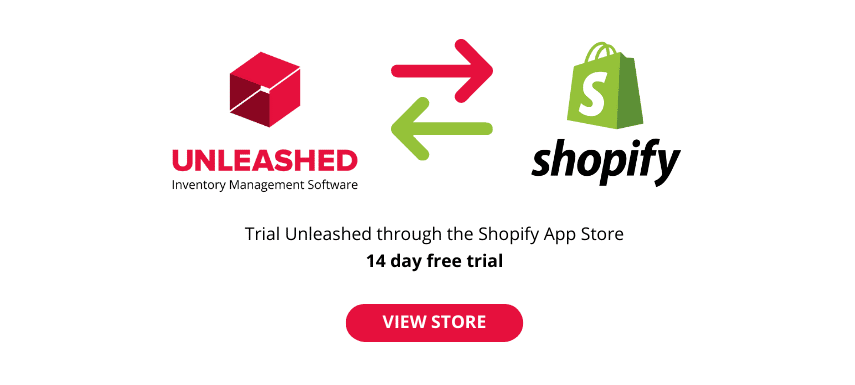
Globally, B2B marketplaces are growing fast. From behemoths like Alibaba and Amazon Business, to smaller start-ups that cater to niche industries, online B2B marketplaces are flourishing - a process accelerated by the outbreak of Covid 19.
Have you ever wondered how a B2B marketplace works, and how they could help your business generate leads and sales? Here we help you answer these questions with an overview of the B2B marketplace landscape, including:
- How a B2B marketplace works
- The pros and cons of B2B marketplaces
- The range of types of B2B marketplace
- The top B2B marketplaces around the world
Read more: Real-time inventory control for your eCommerce business
What is a B2B marketplace?
In essence, a B2B marketplace is a huge ecosystem of online commerce where businesses and commercial customers meet and do business through eCommerce channels. It’s a shift from traditional face-to-face dealings, and as such requires a different commercial mindset, skills and structures.
B2B marketplaces have some similarities to B2C marketplaces, with the main differences being that for B2B:
- Products are bought in larger quantities
- The customer type is generally wholesalers, distributors, or other businesses
- The products can be more complex to handle and deliver
- Online marketplaces are still being developed, whereas B2C marketplaces have been established for many years
Current data shows a third of B2B buyers get 50% or more of their goods in B2B marketplaces. The onset of the Covid 19 pandemic is driving an increase in marketplace usage, and their importance is expected to grow exponentially.
Globally, the B2B eCommerce market is predicted to reach nearly $US14 billion by 2027, up from $US7.6 billion in 2020.
 B2B Marketplaces are online ecosystems that facilitate commercial sales and purchases - yet another way businesses are moving online
B2B Marketplaces are online ecosystems that facilitate commercial sales and purchases - yet another way businesses are moving online
How do B2B marketplaces work?
B2B marketplaces operate within an online portal that is usually managed by a large eCommerce outlet - Alibaba is an example. Generally, businesses that want to use a B2B marketplace have to sign up to a portal at a cost, in return for access to other business offerings and potential customers.
The marketplaces generally offer support such as product management, payment services, customer help, and shipment options. This is designed to either replace or support the business’ own online footprint, such as its website.
B2B marketplaces come with different frameworks, and any business owner will need to ensure they are participating in the one that best meets their business needs.
Are B2B marketplaces worth joining?
B2B marketplaces are a major part of the shift towards online transactions, and the ability to connect in this space becomes more and more important.
Any business looking to scale up, connect with other businesses, or build its customer base would be well advised to consider joining a B2B marketplace. An understanding and appreciation of their importance and their benefits is vital for any growing business. It’s a comfort to know, for instance, that B2B marketplaces offer an extra level of security: all those trading within a marketplace are verified businesses that can be trusted as commercial partners, and there is support provided at various steps of the purchasing process and subsequent transactions.
 B2B marketplaces usually offer support beyond purchasing - such as payment and shipping services
B2B marketplaces usually offer support beyond purchasing - such as payment and shipping services
What are the benefits of a B2B marketplace?
There are multiple benefits of B2B marketplaces. Like we’ve mentioned above, all those operating within a B2B marketplace portal will usually have been put through a verification process, which allows for higher trust levels when trading.
Once inside the marketplace, there is a huge opportunity not only for sales but also for business partnerships and collaborations – so it can definitely provide a boost to your business.
When buying and selling in the marketplace, there is also operator-led support available across product, transactions, payments and delivery. This can lighten the load of business logistics and administration and lessen costs.
What are the downsides of a B2B marketplace?
Alongside the many upsides of B2B marketplaces, there are downsides to consider. These downsides generally relate to specific marketplaces.
Each marketplace will charge businesses a fee to take part, and it’s important for a business to assess whether that cost is outweighed by the benefits of participating.
Businesses trading within the marketplace also lose some control over the online experience. Business is shunted through the channel provided by the marketplace, and while that can be a positive, it can also mean your business can’t create bespoke customer experiences.
And given the rising popularity of B2B marketplaces, there has been a huge rush to create new B2B marketplaces - as with any innovation, some are proving more successful than others. It’s important to ensure the marketplace you choose is the right fit for the ambition and cost structure of your business.
What are the main B2B marketplaces?
The world’s top B2B marketplaces are spread around the globe, with many of them in the Asia-pacific region.
The biggest B2B marketplace in the world is Alibaba, the Chinese giant established by Jack Ma. Alibaba was founded in 1997 to help small businesses leverage technology. The group is now a global behemoth, with a digital ecosystem encompassing eCommerce, cloud computing and media.
China is also the home of Made-In-China, another giant in the industry designed to provide a one-stop service for promoting trade between Chinese businesses and international buyers.
Other major B2B marketplaces have emerged out of India, including TradeIndia and IndiaMart, both founded in the mid-1990s and servicing both SMEs and large enterprises. They compete with the likes of Hong Kong-based Global Sources, which has been around since the early 1970s and is now owned by UK-based Clarion Events.
Another major global B2B marketplace is US-based Amazon Business, the B2B arm of Amazon founded in 2015. Amazon Business is a fairly recent addition to the B2B marketplace ecosystem, but has undergone huge growth – its volume has increased from US$10bn to US$25bn over the last 2.5 years, and it’s tipped to continue growing at a fast pace.
 Amazon Business is a B2B offshoot of Amazon founded in 2015 - and it's been growing rapidly of late
Amazon Business is a B2B offshoot of Amazon founded in 2015 - and it's been growing rapidly of late
What other kinds of B2B marketplaces are there?
The B2B marketplaces we’ve just mentioned are product marketplaces – where products are sold and purchased.
There are also marketplaces for services, known as independent contractor marketplaces or service marketplaces. These differ in that they are for specific services offered by freelancers or contractors, such as ride-sharing or food deliveries.
Like product-based marketplaces, these are gaining in popularity, particularly as the pandemic and flexible working environments fuel the rise of the gig economy.
What are the types of B2B marketplace?
Under the two broad categories of product and service marketplaces, marketplaces can be broken up into three types: vertical, horizontal or hybrid. Here we outline how these different structures work.
What is a vertical B2B marketplace?
A vertical B2B marketplace is one in which a particular ‘vertical’ is the focus of all business. Rather than businesses across multiple sectors and industries taking part, a vertical marketplace focuses on one particular business niche and deals in all related products and services.
An example is PartCycle, which focuses on buying and selling auto parts. Another is Chemnet, which is a vertical B2B marketplace for chemical sales and purchases.
The benefits of vertical B2B marketplaces are the common interests of all of those participating, meaning the experience is likely more efficient and defined than in the broader marketplaces.
What is a horizontal B2B marketplace?
Unlike a vertical B2B marketplace, in a horizontal B2B marketplace a variety of products are sold and bought across the wider needs of an industry.
An example is when the marketplace caters to the housing industry: a horizontal marketplace might deal in the bricks and mortar required for construction, but also supplies for other aspects of the industry, such as furniture and interior design products.
What is a hybrid B2B marketplace?
There has also been a rise in ‘hybrid’ marketplaces which - as the name suggests - operate different but complementary systems.
A marketplace that offers both B2B and B2C options is a hybrid B2B marketplace – with a key benefit that it can use the data drawn from both to streamline its systems and offerings to customers across the wholesale and retail sectors.
 Vertical marketplaces focus on a single business niche, whereas horizontal marketplaces sell a broad range of products to meet the needs of a given industry
Vertical marketplaces focus on a single business niche, whereas horizontal marketplaces sell a broad range of products to meet the needs of a given industry
B2B marketplaces by geography
China’s Alibaba is the biggest B2B marketplace in the world. Broadly speaking, the Asia-Pacific region dominates the space, with an estimated 80% of market share, followed by North America and Europe. Along with Alibaba, the Asia-Pacific region is home to huge marketplaces like TradeIndia, IndiaMart, and Global Sources.
Below we take a closer look at marketplaces by region.
Top marketplaces in the UK
The United Kingdom generally lags behind its B2B marketplace peers in North America and the Asia-Pacific region.
But the UK does have some big players in the sector like Screwfix, which has over 700 stores that work in tandem with a multichannel online marketplace. The success of Screwfix has been in part due to its ability to tap into a huge market of tradespeople through an effective mobile app and eCommerce operations.
Top marketplaces in North America
The North American eCommerce market is dominated by Amazon Business, but it’s not the only player in town. Another significant operator in this space is eBay for Business, with its parent company making $US10 billion in revenue in 2020, and an income of more than $US1.7 billion.
Top marketplaces in Australia & New Zealand
In Australia, TradeSquare - a start-up launched in 2020 - is driving local B2B eCommerce. TradeSquare has positioned itself as a purely Australia-focused market, with buying and selling only available to businesses and organisations within the jurisdiction.
In New Zealand, B2B eCommerce relies heavily on overseas-based operators, although TradeMe is a notable player in B2C eCommerce.
Top marketplaces in Asia
Asia has long been a leader in the B2B eCommerce space. As mentioned above, giants like Alibaba, IndiaMart and TradeIndia have a huge reach in the sector. But other players are significant:
- Indonesia’s Ralali, founded in 2013, has expanded from industrial products into office supplies, construction, medical equipment and much more.
- Thailand's OfficeMate, founded in 1994. Its marketplace is focused on office and IT equipment, along with furniture and other needs for professional outlets.
- GlobalSources, based in Hong Kong, is a notable player in this space. Founded in the 1970s, it has evolved and grown to become a major multi-channel company that operates international trade shows and online marketplaces.
Top marketplaces in Europe
There has been a dramatic rise in B2B marketplaces in Europe over the last five years.
Recent research into the industry shows 60% of those mapped in the region were founded after 2015. Some of these relatively new companies are now coming to the fore as key players in the sector:
- Sennder in Germany connects shipping and trucking companies through its online portal, disrupting the traditional model.
- Spain’s TravelPerk supports business trip bookings across numerous travel options and associated accommodation choices.
- In France, ManoMano and Meero are making waves: The former is designed to support home renovations, and the latter the photographic industry.
 There has been a rise in recent times of B2B marketplaces in Europe - like Sennder, a global transport logistics company
There has been a rise in recent times of B2B marketplaces in Europe - like Sennder, a global transport logistics company
What’s the difference between a B2B marketplace and a B2B platform?
B2B marketplaces and platforms are sometimes confused – so what’s the difference?
A B2B platform is a system that individual businesses can develop as they seek to give their customers a better purchasing experience while also streamlining operations internally.
By contrast, a B2B marketplace brings together like-minded businesses to trade with each other – so it’s a huge operation.
For businesses, it can be useful to develop your own B2B platform initially to understand the systems and skills required. Once this is established, the move into the much bigger and more complex environment of a B2B marketplace should be much smoother.

